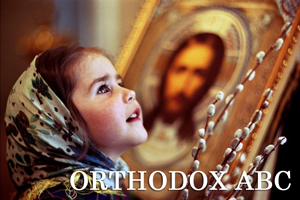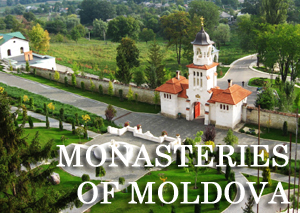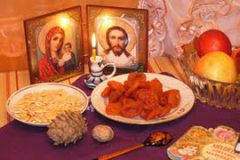
The Nativity fast begins on November 14/27, and lasts forty days. The Nativity fast is not as strict as Great Lent or the Dormition fast, and can be compared to the Apostle’s fast. It was instituted by the Church so that we would worthily greet the feast of the Nativity of Christ after having cleansed our hearts by prayer and repentance.
The establishment of the Nativity fast, like many other long fasts, dates back to the early days of Christianity. Already in the fourth century, St. Ambrose of Milan, Philastrius, and Blessed Augustine recall the Nativity fast in their works. St. Leo the Great wrote about the antiquity of the Nativity fast in the fifth century.
At first the Nativity fast lasted seven days for some Christians and a little longer for others. At the council of 1166 held during the time of Patriarch Luke of Constantinople and the Byzantine Emperor Manuel, all Christians were instructed to keep the fast for forty days before the great feast of the Nativity of Christ.
The Antiochian Patriarch Balsamon wrote that “His Holiness the Patriarch himself said that although these fasts (the Dormition and Nativity fasts —Ed.) are not determined by the canons, let us nevertheless force ourselves to follow the unwritten Church tradition and obligate ourselves to fast … beginning November 15.”
The Nativity fast is the final long fast of the year. It begins on November 15/28 and goes until December 25/January 7, forty days in duration, and therefore it is called the Forty Days in the Church typicon, just like Great Lent. Because the last day before the fast falls on the commemoration day of the Apostle Phillip (November 14/27), this fast is also called the St. Phillip fast.
The Nativity fast is a winter fast; it serves to illumine the end of the year for us with a mystical renovation of our spiritual oneness with God and our preparation for the feast of the Nativity of Christ.
St. Leo the Great writes, “The very observation of abstinence is marked by four periods, so that throughout the course of the year we would know that we continually have need of purification, and that with a distracted life we always need to strive through fasting and almsgiving to eradicate sin, which multiplies through the frailty of the flesh and unclean desires.”
According to the words of St. Leo the Great, the Nativity fast is a sacrifice to God for the fruits we have gathered. “As the Lord generously gave us the fruits of the earth,” writes the holy hierarch, “so should we also be generous to the poor during the fast.”
In the words of St. Simeon of Thessalonica, “The forty days of the Nativity fast is an image of the fast of Moses, who having fasted for forty days and forty nights, received the words of God inscribed on stone tablets. But having fasted for forty days, we gaze upon and receive the living Word from the Virgin, inscribed not on stones, but incarnate and born, and we partake of His Divine flesh.”
The Nativity fast was established so that by the day of Christ’s Nativity we would have cleansed ourselves through repentance, prayer and fasting; so that with a pure heart, soul, and body we could reverently meet the Son of God Who has appeared to the world, and so that besides the usual gifts and sacrifices we would bring Him our pure heart and desire to follow His teaching.
The rule of the Church instructs what we must abstain from during the fasts—“All who piously fast should strictly observe the canons concerning the quality of food; that is, abstain during the fast from certain foods, not as from things defiled [may that not be], but as from things not appropriate to the fast and forbidden by the Church. Foods from which we should abstain during the fasts are: meat, cheese, butter, milk, eggs, and sometimes fish, depending upon which of the holy fasts.”
The rules of abstinence prescribed by the Church for the Nativity fast are as strict as for the Apostle’s fast. Furthermore, on Monday, Wednesday and Friday of the Nativity fast, fish, wine, and oil are not allowed by the typicon, and foods without oil (xerophagy) can be taken only after Vespers. On the other days—Tuesday, Thursday, Saturday, and Sunday—food may be taken with vegetable oil. Fish is allowed during the Nativity fast on Saturdays and Sundays and on major feasts, like the Entry of the Theotokos into the Temple, on a church’s patronal feast, and on commemoration days of great saints if they fall on a Tuesday or Thursday. If they fall on a Wednesday or Friday, the fast may be relaxed to include wine and oil.
From December 20—25 (old style) the fast is intensified, and fish is not blessed even on Saturday and Sunday. Meanwhile, the civil New Year falls on these days [for those observing the Julian calendar], and we Orthodox Christians have to be especially focused, so that we might not break the strict fast by parties, eating, and drinking wine.
Fasting bodily, we must also fast spiritually. “Brothers, in fasting bodily let us also fast spiritually, and break all communion with falsehood,” commands the Holy Church. Fasting is first of all man’s spiritual struggle with his passions. St. John Chrysostom warns,“He is mistaken who thinks that the fast consists only in abstinence from food. True fasting is departing from evil.”
Bodily fasting without spiritual fasting does not bring salvation of the soul; to the contrary, it can even be spiritually harmful if in abstaining from food a person is filled with an awareness of his superiority, knowing that he fasts. True fasting is bound up with prayer, repentance, refraining from passions and vices, uprooting evil deeds, forgiving offenses, abstaining from marital relations, avoiding parties, entertainment, theatres, and watching television. Fasting is not a goal but a means—a means of humbling our flesh and cleansing it from sins. Without prayer and repentance, fasting becomes no more than a diet.
The essence of fasting can be expressed in the following Church hymn: My soul, if you fast from food but are not cleansed of the passions, in vain are we content with not eating: for if the fast does not bring you correction, it will be hateful to God as false, and you will be like the evil demons who eat nothing at all.”
St. Ignatius Brianchaninov:
“Learn to have restraint in food—by temperance you will bring health and strength to the body and vigor to the mind, so needed for the work of salvation…”
St. Isaac the Syrian:
“Fasting with discernment is the spacious dwelling-place of all goodness. Whoever is lazy in fasting brings all goodness to wavering, because fasting was the commandment given to our nature from the beginning as a precaution to eating food, and by breaking the fast our first created fell.”
St. Ambrose of Optina:
You must fast sensibly; try to conduct the coming fast judiciously, considering your physical strength.
 Memorial house of romanian elder Sofian Boghiu Consecrated in his native Village
Memorial house of romanian elder Sofian Boghiu Consecrated in his native Village 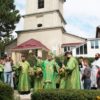 On the 14th Sunday after Pentecost, His Eminence Metropolitan Vladimir celebrated the Divine Liturgy in the St. Nicolas Monastery, Dobrusa village, Soldanesti region
On the 14th Sunday after Pentecost, His Eminence Metropolitan Vladimir celebrated the Divine Liturgy in the St. Nicolas Monastery, Dobrusa village, Soldanesti region  Inauguration of the volume of articles presented at the National Scientific Conference “The Orthodox Church and the State: Faith and Knowledge”
Inauguration of the volume of articles presented at the National Scientific Conference “The Orthodox Church and the State: Faith and Knowledge” 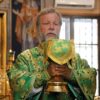 The 12th Sunday after Pentecost – kindness in God changes the world we live in
The 12th Sunday after Pentecost – kindness in God changes the world we live in 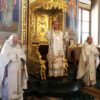 The 11th Sunday after Pentecost – loving our God and our neighbor
The 11th Sunday after Pentecost – loving our God and our neighbor 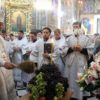 The Transfiguration of the Lord, celebrated in the Nativity of the Lord Cathedral in Chisinau
The Transfiguration of the Lord, celebrated in the Nativity of the Lord Cathedral in Chisinau  His Eminence Metropolitan Vladimir celebrates 65th anniversary
His Eminence Metropolitan Vladimir celebrates 65th anniversary  Divine Service at the St. Theodore of Tyre Monastery (Ciuflea) in Chisinau, and congratulation of Archimandrite Nicolae (Rosca), the Monastery’s confessor-administrator, on the 50th anniversary.
Divine Service at the St. Theodore of Tyre Monastery (Ciuflea) in Chisinau, and congratulation of Archimandrite Nicolae (Rosca), the Monastery’s confessor-administrator, on the 50th anniversary.  The Tenth Sunday after Pentecost: Divine Liturgy in the Nativity of the Lord Cathedral in Chisinau
The Tenth Sunday after Pentecost: Divine Liturgy in the Nativity of the Lord Cathedral in Chisinau 
